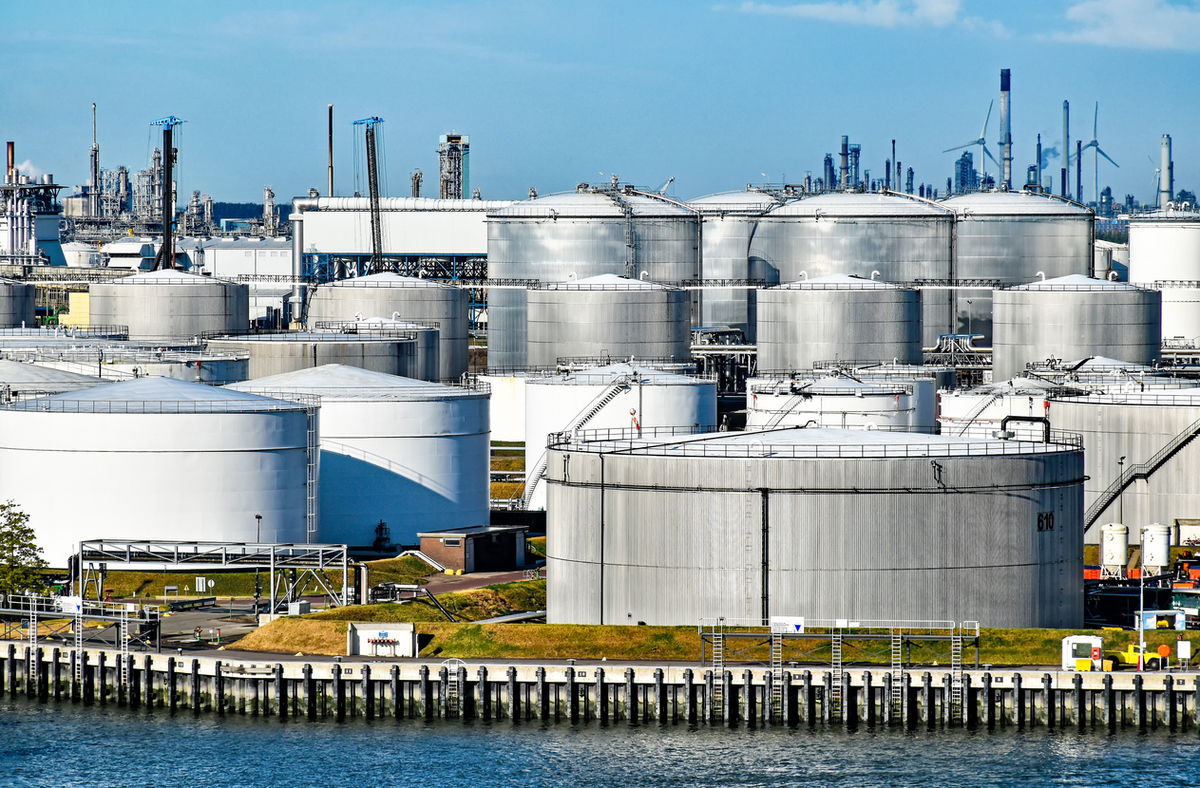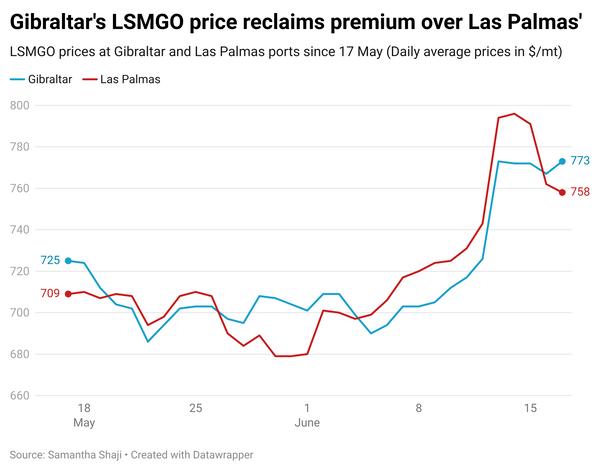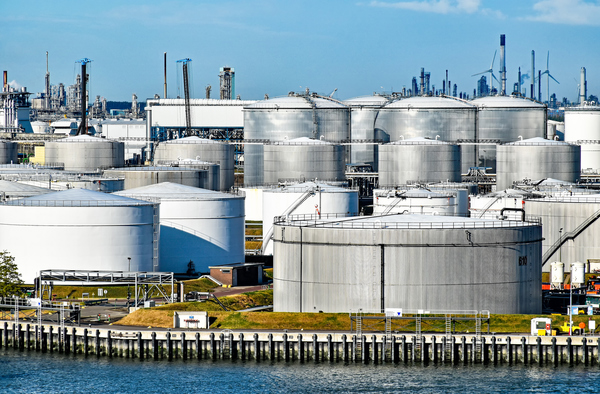Europe & Africa Market Update 16 Jun 2025
Bunker benchmarks in European and African ports have declined, and suppliers in Ceuta are reporting delays.
 IMAGE: Oil storage tanks in the oil and bunkering hub of Rotterdam, Netherlands. Getty Images
IMAGE: Oil storage tanks in the oil and bunkering hub of Rotterdam, Netherlands. Getty Images
Changes on the day from Friday, to 09.00 GMT today:
- VLSFO prices down in Gibraltar ($21/mt), Durban ($18/mt) and Rotterdam ($17/mt)
- LSMGO prices down in Gibraltar ($12/mt) and Rotterdam ($11/mt)
- HSFO prices down in Gibraltar ($18/mt) and Rotterdam ($2/mt)
- Rotterdam B30-VLSFO premium over VLSFO down by $14 at $260/mt
Prices across Rotterdam, Durban and Gibraltar have recorded losses. Gibraltar’s HSFO premium over Rotterdam has narrowed by $16/mt over the weekend, to $31/mt now.
Gibraltar has three vessels awaiting bunkers today, according to port agent MH Bland. A lack of space and limited barge availability remain the primary causes for this hold up. One supplier is running 6-12 hours behind schedule, the port agent said.
Across the Strait, one vessel is awaiting bunkers at Ceuta, while 13 more are scheduled to arrive for bunkers today, shipping agent Jose Salama & Co said. It also added that suppliers are delayed by about 5-7 hours in Ceuta.
Lisbon continues to have good bunker supply, with recommended lead times of 3-5 days, according to a trader.
In Togo’s Lome, availability of all grades is good, with lead times of 5-7 days recommended, a trader said.
Durban has good bunker supply, with 2-4 days of lead time advised, a trader said. LSMGO supply remains dry.
Brent
The front-month ICE Brent contract has declined by $0.61/bbl on the day from Friday, to trade at $73.63/bbl at 09.00 GMT.
Upward pressure:
Brent crude’s price has gained some upward momentum over the weekend as the simmering conflict between Israel and Iran quickly escalated, with the former targeting Tehran’s oil and gas facilities.
Over the weekend, Israel struck two key energy facilities near Tehran – Shahran fuel depot and the Shahr Rey oil refinery. The strikes have caused a series of explosions, according to media reports. Both the facilities were among the largest oil infrastructure sites in Iran.
“This marks a dramatic escalation in the conflict that has hung over the oil market since Hamas attacked Israel about 20 months ago,” ANZ Bank’s senior commodity strategist Daniel Hynes remarked.
Iran also retaliated with a barrage of drones and missiles towards multiple Israeli cities including the Haifa oil refinery in northern Israel. “The risk that this conflict will impact flows of crude oil rose significantly over the weekend,” Hynes added.
Downward pressure:
Additional supply from OPEC+ producers such as Saudi Arabia and the UAE could help cushion the market against short-term supply disruptions, according to market analysts.
“OPEC sits on 5m b/d [5 million b/d] of spare production capacity, and so any supply disruptions could prompt OPEC to bring this supply back onto the market quicker than expected,” two analysts from ING Bank noted.
Earlier in June, the oil producers’ alliance agreed to raise output by 411,000 b/d for July, maintaining the same monthly increase it has implemented consistently for the past three months.
Market watchers will closely review the upcoming OPEC oil market report, due later today, for fresh insights into the group’s supply and demand outlook.
By Samantha Shaji and Aparupa Mazumder
Please get in touch with comments or additional info to news@engine.online

Contact our Experts
With 50+ traders in 12 offices around the world, our team is available 24/7 to support you in your energy procurement needs.




